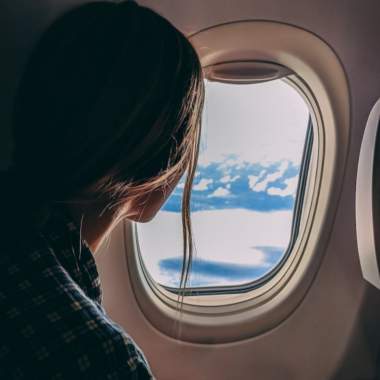In a world where we are constantly connected and often surrounded by others, the idea of solo travel can seem daunting at first. Yet, it is in the solitude and independence of traveling alone that many find profound psychological growth and self-awareness. This article delves into the myriad psychological benefits of solo travel, shedding light on how such experiences can lead to significant personal development and mental well-being.
Unraveling the Psychological Impacts of Traveling Solo
Traveling solo goes beyond merely visiting new places; it involves an inward journey that can profoundly impact one’s mental and emotional state. The experience is vastly different from group travel, where decisions and experiences are often shared. Solo travel places you at the helm of every decision, from choosing the next destination to handling unforeseen challenges. This level of autonomy and responsibility can be incredibly empowering, fostering a sense of independence that is difficult to cultivate in the comfort of familiar surroundings and company.
Independence and Self-Reliance
Solo travel is a powerful catalyst for developing independence and self-reliance. When you travel alone, every decision – from navigating a new city to handling logistical challenges – rests on your shoulders. This necessity to rely on oneself enhances decision-making skills and boosts confidence. It’s a unique environment where the safety net of familiar faces and places is removed, compelling solo travelers to trust their instincts and abilities.
Stepping Out of the Comfort Zone
One of the most significant aspects of solo travel is stepping out of one’s comfort zone. It’s about confronting and overcoming fears – whether it’s the apprehension of being alone, dealing with language barriers, or navigating unfamiliar public transportation systems. Each challenge overcome is a step towards personal growth. Stories of solo travelers often reveal how these experiences have led to increased self-esteem and a profound sense of accomplishment.
In the next section, we explore the freedom of solo travel and its impact on mental well-being, highlighting how the flexibility and self-paced nature of traveling alone contributes to stress reduction and mindfulness. Stay tuned for more insights.

The Freedom of Solo Travel and Mental Well-being
The essence of solo travel lies in its unparalleled freedom and flexibility, which have profound effects on mental well-being. Traveling alone, you are the master of your itinerary, free to choose when to start your day, what to see, where to eat, and when to rest. This freedom allows for a more personalized and fulfilling travel experience, aligned with your interests and pace.
Experiencing Travel at Your Own Pace
Solo travel enables you to tailor your trip to your personal preferences and needs. There’s no need to compromise or adjust your plans to fit others’ schedules or interests. This autonomy is incredibly liberating, allowing you to fully immerse yourself in activities that bring you joy and skip those that don’t. Whether it’s spending hours in a museum, taking a spontaneous hiking trip, or simply resting in a quaint café, you have the liberty to make these choices without external pressure.
Impact on Stress Reduction and Self-Reflection
The flexibility of solo travel also contributes significantly to stress reduction. Without the need to coordinate with others, you’re less likely to feel rushed or pressured, leading to a more relaxed and enjoyable experience. Furthermore, solo travel offers ample opportunities for self-reflection. In the absence of constant companionship, you’re more likely to engage in introspection, contemplating life goals, personal values, and future aspirations. This can be a therapeutic and enlightening experience, leading to greater self-awareness and clarity.

Connecting with Others and Building Empathy
Contrary to the notion that solo travel is lonely, it often leads to more profound connections with others and a heightened sense of empathy.
Enhancing Social Skills and Making Meaningful Connections
Traveling alone naturally pushes you to interact with locals and fellow travelers. These interactions can develop and enhance social skills such as communication, adaptability, and openness. Solo travelers often find themselves forming meaningful connections with people from diverse backgrounds, leading to a deeper understanding and appreciation of different cultures and ways of life.
Developing Empathy Through Cultural Exposure
Exposure to various cultures and lifestyles during solo travel fosters empathy. By stepping into the lives of others, even briefly, you gain insights into their challenges, joys, and perspectives. This experience broadens your worldview and cultivates a sense of empathy and connectedness with people across the globe.

Overcoming Challenges and Building Resilience
Solo travel isn’t just about the beautiful destinations and the joy of discovery; it’s also about facing and overcoming the inevitable challenges that arise. Dealing with these hurdles head-on builds resilience, a crucial psychological benefit of traveling alone.
Navigating Common Challenges as a Solo Traveler
As a solo traveler, you might encounter various challenges, from logistical issues like missed flights or lost reservations to more personal struggles such as loneliness or culture shock. Each of these situations requires problem-solving and adaptability, reinforcing your ability to handle adversity. Over time, these experiences build a resilience that transcends travel, equipping you with the fortitude to face life’s challenges.
Learning from Difficult Situations
Every challenge presents a learning opportunity. Solo travel teaches you to view obstacles as chances to grow rather than insurmountable problems. Whether it’s finding your way in a city where you don’t speak the language or dealing with unexpected situations, these experiences enhance your resourcefulness and flexibility.
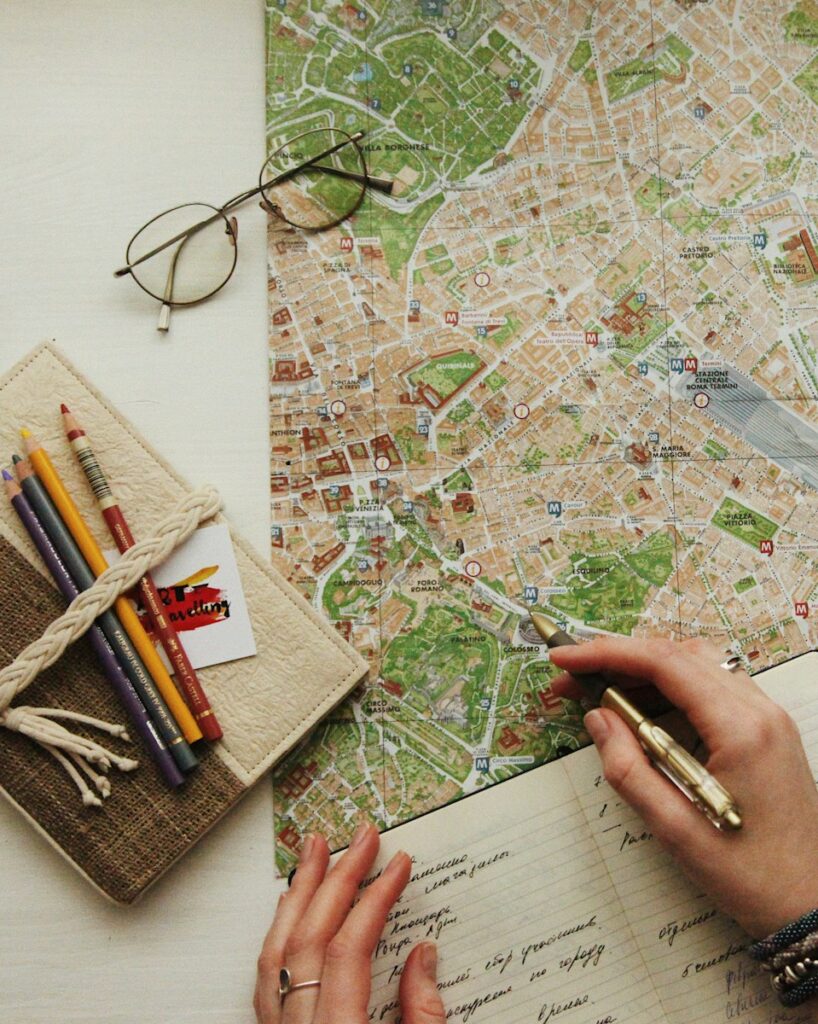
The Role of Mindfulness in Solo Travel
Solo travel and mindfulness go hand in hand. When you travel alone, you’re more attuned to your surroundings, your thoughts, and your emotions, fostering a state of mindfulness that can be deeply rewarding.
Encouraging Present-Moment Awareness
Traveling solo encourages you to live in the moment. Without the distraction of familiar company, you’re more likely to notice the details around you—the sights, sounds, and smells of new environments. This heightened awareness enhances the travel experience, making it more vivid and memorable.
Mindfulness Practices for Solo Travelers
Practicing mindfulness on your solo journey can enhance your experience. Simple practices like mindful walking, journaling, or meditative breathing can help you stay grounded and fully appreciate the moment. These practices not only enrich your travel experience but also contribute to your overall mental well-being.
Self-Discovery and Personal Growth
One of the most profound benefits of solo travel is the journey towards self-discovery and personal growth. Away from the routines and expectations of everyday life, solo travel offers a unique opportunity to look inward and explore aspects of your personality and aspirations that might otherwise remain undiscovered.
Exploring Inner Landscapes
Solo travel provides an unrivaled setting for introspection. In the absence of familiar faces and surroundings, you are more likely to engage in self-reflection. This can lead to a deeper understanding of your personal preferences, dislikes, strengths, and areas for improvement. The experiences and challenges encountered while traveling alone act as catalysts for this self-exploration, often leading to significant personal revelations and growth.
The Role of Solitude in Understanding Oneself
Solitude, a common aspect of solo travel, is not just about being alone; it’s about being with yourself. In these moments of solitude, you can listen to your thoughts and feelings without the noise of external influences. This can be a powerful experience, leading to greater self-awareness and clarity about your life choices and future direction.
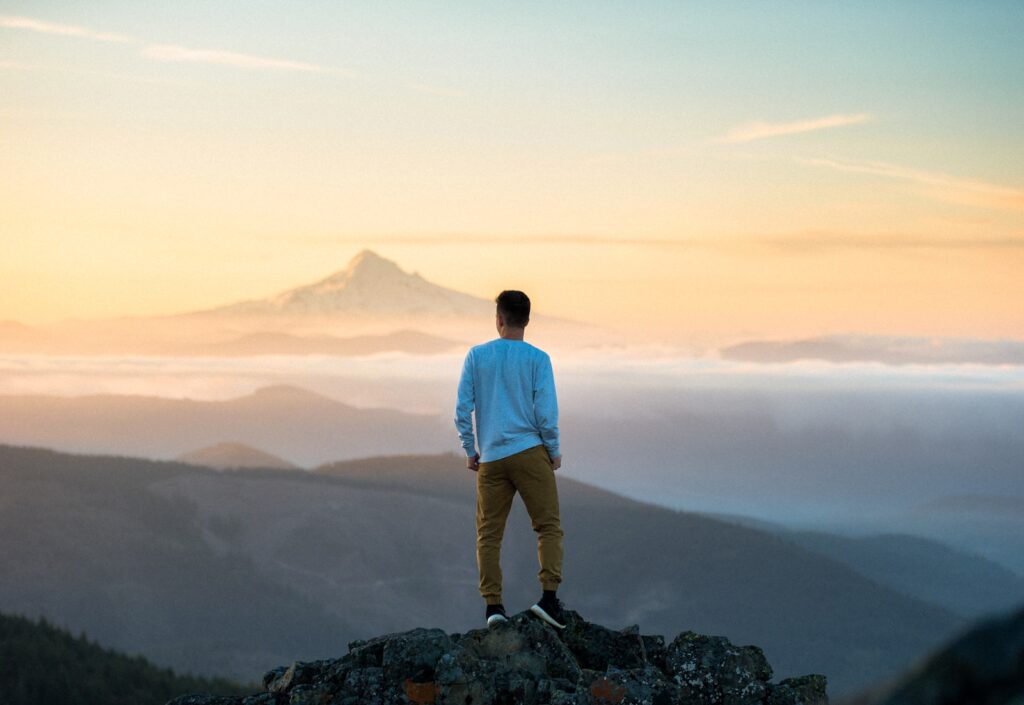
Creativity and Inspiration from Solo Travel
Traveling alone not only fosters personal growth but can also ignite creativity and inspiration. New experiences and environments can stimulate the mind in unexpected ways.
How New Experiences Spark Creativity
Being exposed to different cultures, landscapes, and lifestyles can profoundly impact your creative thinking. Solo travelers often find inspiration in the simplest of things – a conversation with a local, the architecture of a foreign city, or the tranquility of a natural landscape. This can lead to new ideas, perspectives, and, ultimately, creative endeavors.
Examples of Creative Outcomes from Solo Travel
Many solo travelers have translated their experiences into creative projects like photography, writing, art, or even starting a new business. The inspiration derived from these journeys often leads to a newfound passion or a rejuvenation of existing creative interests.
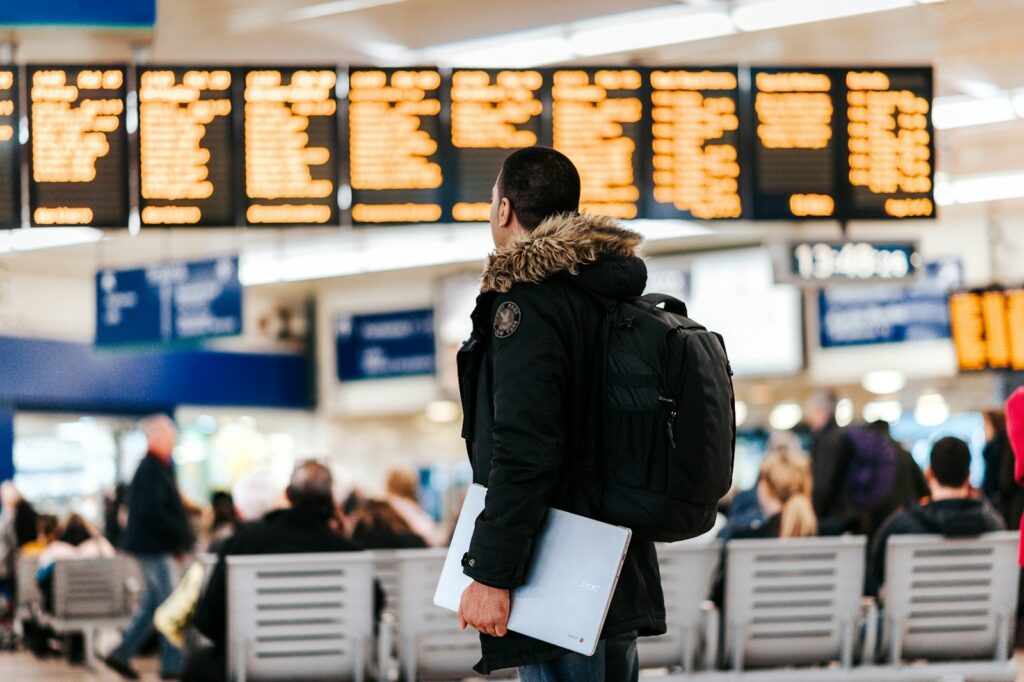
Long-Term Psychological Benefits of Solo Travel
The impact of solo travel extends far beyond the immediate experiences and adventures. The lessons learned, the confidence gained, and the personal growth achieved have long-term implications for mental health and overall life satisfaction.
Lasting Impact on Mental Health and Outlook on Life
Solo travel often leads to a more positive outlook on life. The challenges and triumphs experienced while traveling alone can result in increased self-esteem and a greater sense of accomplishment. This newfound confidence and broader perspective can influence various aspects of life, from career choices to personal relationships.
Research and Expert Opinions on Solo Travel Benefits
Studies and expert opinions in the fields of psychology and travel consistently highlight the long-term benefits of solo travel. These include improved problem-solving skills, greater emotional resilience, and enhanced creativity. Additionally, solo travelers often report a deeper sense of gratitude and a more profound appreciation for their experiences and relationships.
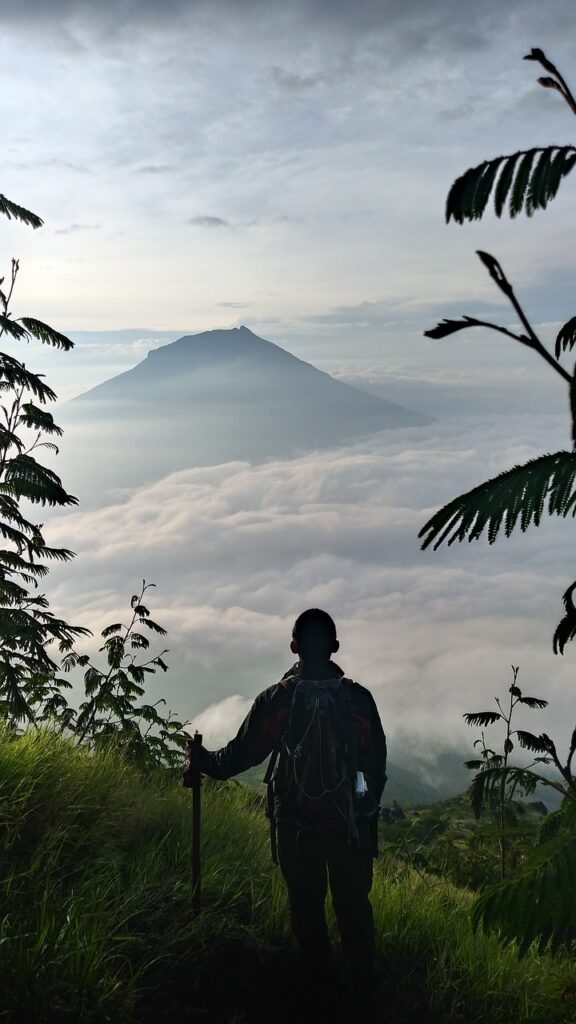
Preparing for Solo Travel: Mental and Emotional Considerations
Embarking on a solo journey requires not just physical but also mental and emotional preparation. Understanding and preparing for the psychological aspects of solo travel is crucial for a fulfilling experience.
Managing Expectations and Dealing with Loneliness
It’s important to have realistic expectations about solo travel. While it can be incredibly rewarding, it also comes with its share of challenges. Dealing with moments of loneliness is one such challenge. It’s essential to develop strategies to cope with these feelings, such as keeping a journal, staying in touch with loved ones, or joining group activities when needed.
Ensuring Safety and Mental Well-being
Safety is a prime concern for solo travelers. Researching your destination, understanding local customs, and staying aware of your surroundings are key to a safe trip. Additionally, taking care of your mental well-being is crucial. This includes recognizing when you need a break, ensuring you get enough rest, and being kind to yourself if things don’t go as planned.
Solo travel is more than just a way to see the world; it’s a pathway to personal growth, self-discovery, and psychological resilience. The benefits of embarking on a solo journey extend far beyond the duration of the trip itself, influencing personal development, creativity, and life perspective. Whether you’re a seasoned solo traveler or considering your first solo adventure, the psychological benefits are profound and lasting. Embrace the journey, and discover not just new places, but new facets of yourself.








